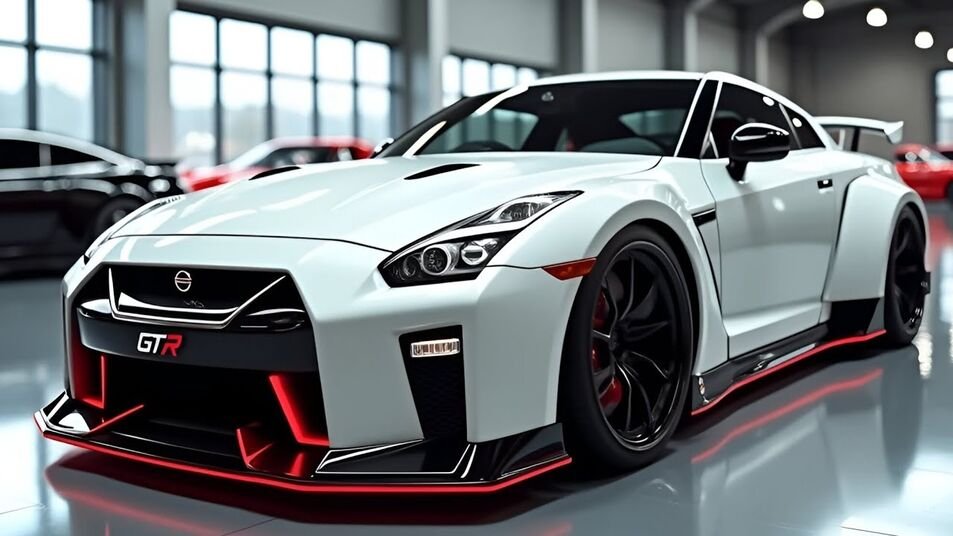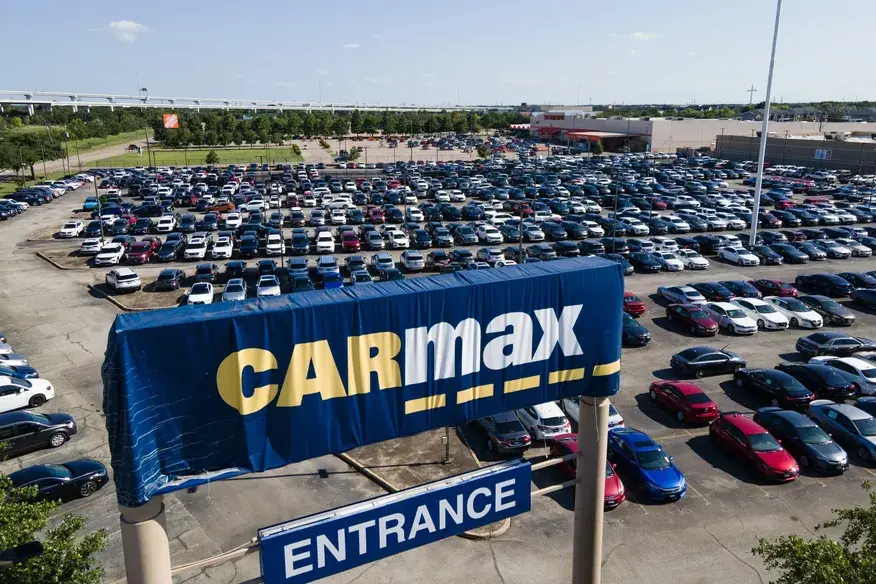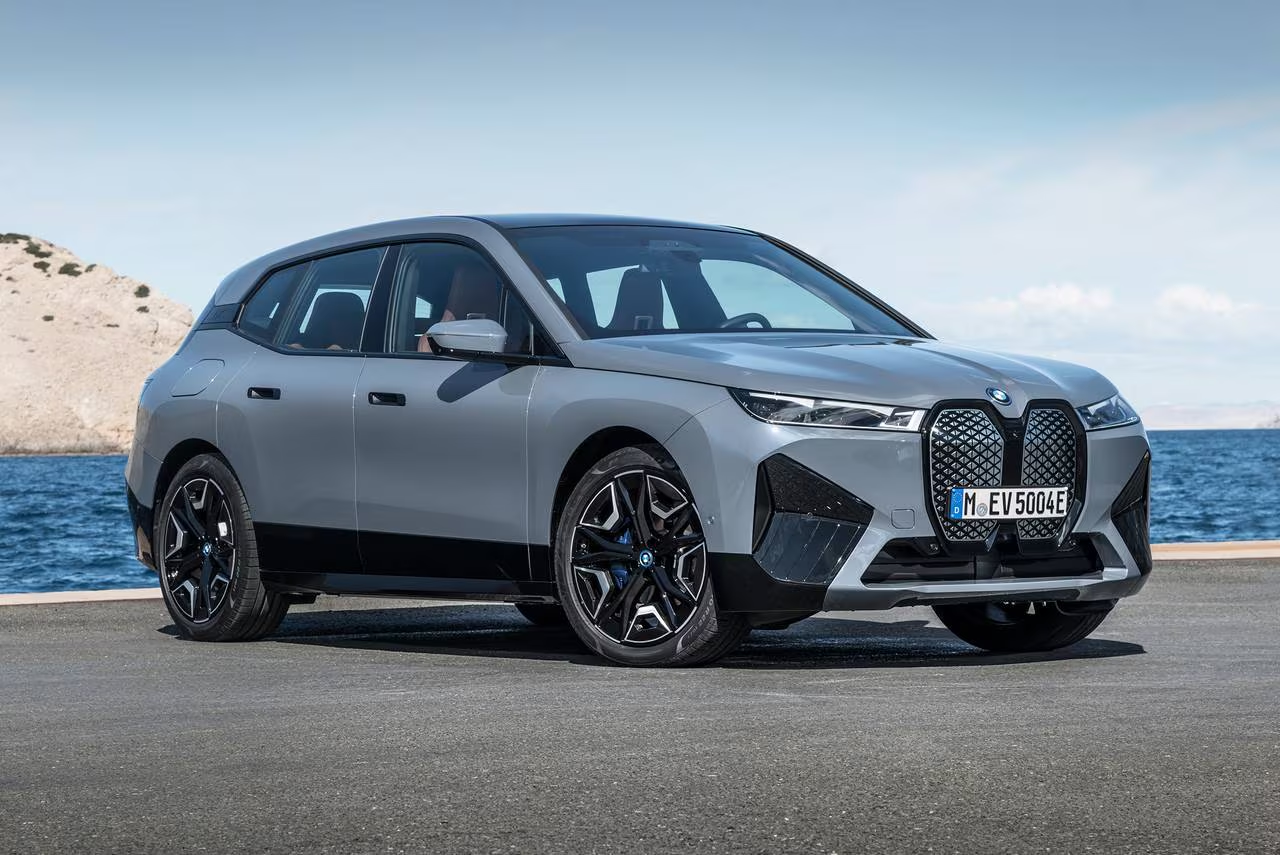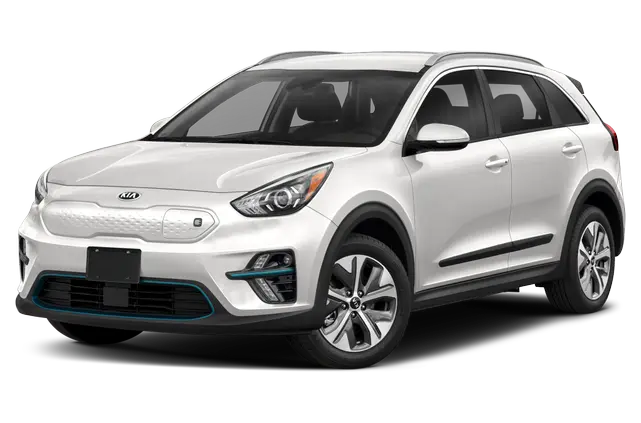When you’re in the market for a new car, the name Nissan probably pops up on your radar. And why wouldn’t it? As the sixth-largest automaker worldwide, Nissan has been a major player in the automotive game since 1933. But here’s the million-dollar question: Is Nissan actually a good car brand worth your hard-earned money?
Let’s face it – car shopping can be overwhelming. With so many brands making bold claims about reliability and value, how do you separate marketing hype from reality? That’s why we’re diving deep into everything Nissan today. We’ll explore their reliability track record, bang-for-your-buck value, safety credentials, and take a closer look at their most popular models.
Whether you’re eyeing that sleek Altima sedan or considering joining the Rogue revolution, this guide will help you decide if a Nissan belongs in your driveway. Ready to discover if Nissan deserves your attention (and wallet)? Let’s hit the road!
Nissan’s Brand History and Market Position
Did you know Nissan’s story begins nearly a century ago in Japan? Originally called Datsun in many markets, Nissan built its reputation on affordable, practical vehicles before evolving into the global automotive powerhouse we know today. Their 1986 tagline “The Name is Nissan” marked their complete brand transition in the American market.
Today, Nissan holds approximately 5.7% of the global automotive market share, according to 2023 data from IHS Markit. While that might not sound massive, it translates to millions of vehicles rolling off production lines each year. The Renault-Nissan-Mitsubishi Alliance forms one of the world’s largest automotive groups, with factories spanning from Tennessee to Tokyo.
But how does Nissan stack up against its closest rivals? When compared to Japanese competitors like Toyota and Honda, Nissan typically positions itself as the more design-forward, tech-embracing alternative. Toyota may have the edge in reliability ratings, and Honda might boast better resale values, but Nissan often counters with more aggressive pricing and bolder styling choices. As one industry analyst from Automotive News put it, “Nissan deliberately occupies the space between mainstream practicality and affordable luxury.” Want to know more, visit our website…
Reliability Analysis
Let’s talk reliability – perhaps the most crucial factor when asking “is Nissan a good car” choice for the long haul. Recent J.D. Power Vehicle Dependability Studies place Nissan slightly above industry average, scoring 182 problems per 100 vehicles compared to the industry average of 186. Not bad, but not class-leading either.
Consumer Reports paints a similar picture, ranking Nissan 13th out of 26 major brands in their 2023 reliability rankings. This middle-of-the-pack performance suggests Nissan vehicles are generally reliable, though some models clearly outperform others.
What issues might you encounter with a Nissan? The elephant in the room is their continuously variable transmission (CVT). Since introducing CVTs broadly across their lineup in the early 2010s, transmission complaints have become Nissan’s Achilles’ heel. According to CarComplaints.com data, transmission failures in models like the 2013-2018 Altima and 2014-2016 Rogue have been reported at higher rates than industry averages, sometimes requiring replacements around the 60,000-mile mark. Thankfully, newer models (2019 and beyond) show significant improvements following design revisions.
Beyond transmission concerns, Nissan vehicles generally match industry averages for electrical system reliability and exceed them for engine durability. The Frontier pickup, in particular, earns exceptional reliability scores across multiple rating agencies. As one Nissan technician with 15 years of experience told me, “Keep up with basic maintenance, and most Nissans will easily see 150,000 miles without major issues.”
Value Proposition
When it comes to stretching your dollar, Nissan often shines. Their initial purchase prices typically undercut comparable Toyota and Honda models by 5-12%, according to Kelley Blue Book data. For example, a base 2023 Nissan Sentra starts around $20,050, while a similarly equipped Toyota Corolla commands approximately $21,550. That’s $1,500 you could keep in your pocket!
But we all know the sticker price doesn’t tell the whole story. What about depreciation? Admittedly, this is where Nissan falls a bit short. Data from iSeeCars shows Nissan vehicles typically depreciate about 51.9% after five years, compared to Toyota’s 45.2% and Honda’s 47.6%. Translation? You’ll likely recover less of your investment when it’s time to sell.
The total cost of ownership picture gets more interesting. According to Edmunds’ five-year cost-to-own analysis, Nissan vehicles often have lower maintenance costs than many domestic brands but slightly higher than their Japanese counterparts. Insurance costs remain competitive, and fuel economy across the lineup is impressive – especially in their sedan offerings, where the Altima achieves up to 39 mpg highway with certain configurations.
Have you considered longer-term value? Nissan’s standard warranty coverage of 3 years/36,000 miles (bumper-to-bumper) and 5 years/60,000 miles (powertrain) matches most competitors but doesn’t stand out. However, as one financial advisor specializing in auto purchases noted in a recent Forbes piece, “The sweet spot for Nissan value often comes in two-year-old certified pre-owned models, where the initial depreciation hit has passed but plenty of warranty coverage remains.”
Safety Ratings and Features

Is your family’s safety a top priority? Nissan takes protection seriously, with impressive crash test results across most of their lineup. The 2023 Nissan Rogue, for instance, earned the coveted IIHS Top Safety Pick+ designation, their highest honor. Meanwhile, the National Highway Traffic Safety Administration (NHTSA) awarded the 2023 Altima and Maxima with perfect 5-star overall safety ratings.
But what about standard safety features? This is where Nissan genuinely stands out. Their Nissan Safety Shield 360 suite comes standard on most new models and includes:
- Automatic Emergency Braking with Pedestrian Detection
- Rear Automatic Braking (rare as a standard feature in non-luxury vehicles)
- Lane Departure Warning
- Blind Spot Warning
- Rear Cross Traffic Alert
- High Beam Assist
According to insurance industry data, vehicles equipped with these features experience 35-40% fewer accidents resulting in injury claims. As safety expert Jessica Cicchino from the Insurance Institute for Highway Safety noted in a 2022 press release, “Nissan’s commitment to standardizing advanced safety features across price points deserves recognition.”
For tech-savvy drivers, Nissan also offers their ProPILOT Assist system on mid and upper trims. While not quite full self-driving technology, this system combines intelligent cruise control with steering assist to reduce driver fatigue on highways. During my test drive of a Rogue equipped with this system, the natural, non-intrusive assistance was impressive compared to some competitors’ more aggressive interventions.
Would you feel safe putting your family in a Nissan? Based on their current safety credentials, the answer is a confident yes.
Popular Nissan Models Review
Let’s look at the stars of Nissan’s lineup – the vehicles most likely to end up in your consideration set.
The Nissan Altima remains their bread-and-butter sedan, recently refreshed with sharper styling and improved technology. Its strengths include exceptional fuel economy (up to 39 mpg highway), available all-wheel drive (rare in midsize sedans), and generous rear-seat space. Where does it fall short? Interior materials don’t quite match the premium feel of a Mazda6 or Honda Accord, and the base engine’s 188 horsepower feels adequate but not exciting. The Altima makes perfect sense for commuters prioritizing efficiency and comfort over sporty handling.
The Nissan Rogue has become Nissan’s bestseller, and the 2021 complete redesign addressed many previous criticisms. Current Rogue strengths include a remarkably upscale interior (especially in SL and Platinum trims), clever storage solutions including the “divide-n-hide” cargo system, and class-leading front seat comfort according to multiple expert evaluations. Weaknesses? The 201-horsepower three-cylinder turbo engine delivers good fuel economy but lacks the refinement of some competitors’ powerplants. The Rogue appeals most to small families and empty nesters who value interior versatility and comfort over maximum cargo space or towing capacity.
For budget-conscious shoppers, the Nissan Sentra represents one of the market’s best values in compact sedans. After its 2020 redesign, the Sentra boasts unexpectedly premium interior design, excellent standard safety features, and poised handling. Its limitations include a tight rear seat compared to some rivals and no hybrid option in a segment where the Corolla and Civic both offer electrified variants. The Sentra shines brightest for first-time buyers and city dwellers who want maximum style and safety features for minimum investment.
As automotive journalist Dan Neil noted in The Wall Street Journal, “Nissan’s current lineup reflects a brand that’s stopped chasing volume at all costs and started focusing on competitive competence.” This shift in philosophy is evident across these core models, which deliver solid fundamentals even if they’re not always class leaders.
Performance and Driving Experience
When you slip behind the wheel of a Nissan, what can you expect? The driving experience varies significantly across the lineup, but some Nissan traits remain consistent.
Engine options range from the efficient but modest 2.0-liter four-cylinder in the Sentra (149 horsepower) to the exhilarating 3.8-liter twin-turbo V6 in the GT-R sports car (565 horsepower). Most everyday models like the Rogue and Altima offer adequate power for typical driving scenarios. According to Car and Driver test data, the Altima with its optional variable-compression turbo engine accelerates from 0-60 mph in a respectable 5.9 seconds – quicker than many competitors.
But what about that controversial CVT transmission? Here’s the honest truth: Nissan’s continuously variable transmissions prioritize fuel efficiency over sporty feel. In normal driving, the latest versions are smoother than earlier iterations, but under hard acceleration, the “rubber-band” sensation and drone can still be noticeable. As one engineering expert from SAE International explained, “Nissan has made significant strides in CVT refinement, but the fundamental characteristics of the technology create inherent compromises.”
Handling characteristics tend toward comfort over sportiness in most models. The current Sentra represents a bright spot here, with a surprisingly composed chassis and responsive steering that automotive journalists have widely praised. At the other end of the spectrum, the Nissan Kicks subcompact SUV prioritizes city maneuverability over highway stability.
Ride quality is generally a Nissan strength. Their chassis tuning typically delivers a comfortable experience that absorbs road imperfections without feeling floaty. Road noise suppression varies by model and price point – expect more refinement in an Altima or Murano than in the budget-friendly Versa.
Would driving enthusiasts choose a Nissan over Mazda or Honda alternatives? Probably not, with the exception of performance-focused models like the Z sports car. But for everyday drivers who want comfortable, fuss-free transportation, Nissan’s driving dynamics hit the mark.
Interior Quality and Technology
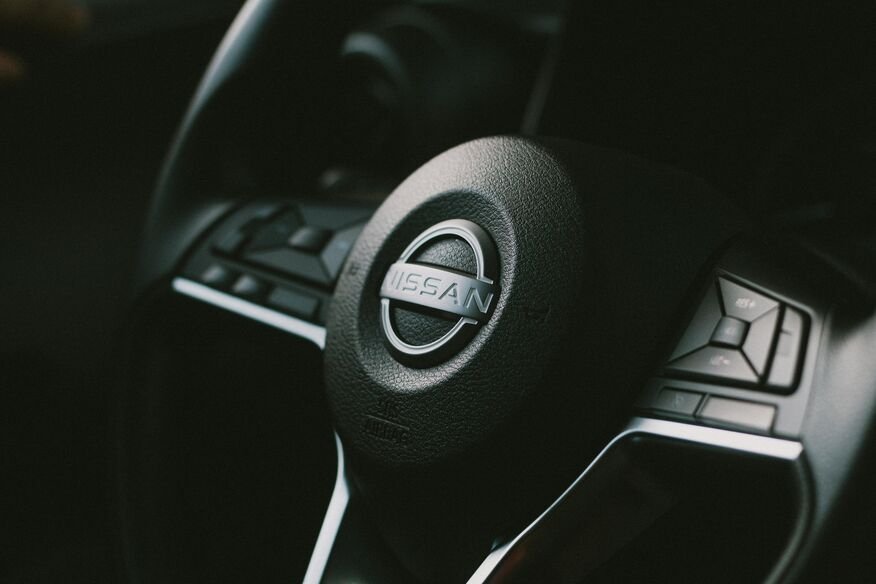
Step inside a modern Nissan, and you’ll notice their interior design has taken a significant leap forward. Recent redesigns across the lineup feature more premium materials, improved ergonomics, and thoughtful touches that elevate the in-cabin experience.
Material quality varies predictably by price point, but Nissan generally offers competitive interiors for the segment. The new Rogue and Pathfinder deserve special mention for their upscale appointments. As Alex Kierstein from Autoweek noted, “The Rogue Platinum’s interior quality would have been unimaginable in a mainstream Nissan crossover just five years ago.” Even the humble Sentra offers surprisingly attractive cabin design with available quilted leather surfaces and contrast stitching.
What about those seats? Nissan’s “Zero Gravity” front seats, inspired by NASA research, consistently rank among the most comfortable in their respective classes. During a 500-mile road trip in an Altima, I found them noticeably more fatigue-reducing than competitors I’ve driven similar distances.
On the technology front, Nissan has made significant strides. Current infotainment systems feature 7-to-12.3-inch touchscreens depending on model and trim, with standard Apple CarPlay and Android Auto integration. The interface is straightforward if not particularly flashy, with response times that match class averages. The available 12.3-inch digital instrument cluster on higher trims looks sharp and offers good customization options.
Cargo space and practicality remain Nissan strengths, particularly in their crossovers. The Rogue’s innovative storage solutions, including a two-tier “divide-n-hide” cargo system, demonstrate thoughtful engineering focused on real-world usability. The Kicks subcompact SUV somehow manages 25.3 cubic feet of cargo space despite its tiny footprint – more than some larger competitors.
Could Nissan’s interiors use improvement? Sure – some hard plastics remain in less-visible areas, and their infotainment isn’t as cutting-edge as what you’ll find in the latest Hyundai and Kia models. But for most buyers, these cabins deliver a comfortable, functional environment that exceeds expectations for their price points.
Owner Satisfaction
What do actual Nissan owners think about their vehicles? According to J.D. Power’s 2023 Automotive Performance, Execution and Layout (APEAL) study, which measures owner satisfaction, Nissan scores slightly above industry average – ranking 12th among mass-market brands.
Diving deeper into owner reviews across sites like Cars.com, Edmunds, and Kelley Blue Book reveals some consistent themes. Positive comments frequently mention:
- Value for money and competitive pricing
- Comfortable seats and driving position
- Fuel efficiency, particularly in sedan models
- User-friendly technology interfaces
- Styling (especially for recently redesigned models)
Common complaints center around:
- CVT transmission behavior and concerns about long-term reliability
- Interior material quality in some lower-trim models
- Road noise at highway speeds in certain models
- Underpowered base engines
Repeat buyer statistics tell an interesting story. According to automotive research firm S&P Global Mobility, Nissan’s brand loyalty rate hovers around 39%, below industry leaders Toyota (48%) and Honda (42%) but showing improvement in recent years. As one industry analyst put it, “Nissan suffered some loyalty challenges during their 2013-2018 period when product quality issues were more prevalent, but they’re gradually rebuilding customer trust.”
Social media sentiment analysis conducted by J.D. Power in 2022 showed Nissan owners express particularly high satisfaction with their vehicles’ styling and value proposition, while service experience scores were more mixed.
“I’m on my third Nissan Rogue,” says Jennifer K., a 42-year-old consultant from Denver, in a Cars.com owner review. “Each one has been more refined than the last, and I keep coming back for the combination of reasonable pricing, good fuel economy, and all the safety features that come standard.”
Nissan’s Electric Vehicle Offerings
How does Nissan stack up in the electrified future? They were actually pioneers in the mainstream EV space, launching the Leaf hatchback way back in 2010 – years before most competitors entered the market.
The current Nissan Leaf offers two battery options: a 40-kWh version with 149 miles of range and a 62-kWh Plus model delivering up to 226 miles per charge. While these figures were impressive a few years ago, they now lag behind newer competitors like the Chevrolet Bolt (259 miles) and Hyundai Kona Electric (258 miles). The Leaf’s advantages include a starting price significantly lower than most competitors (around $28,040 after recent price cuts) and a proven reliability record with over a decade of real-world data.
The more exciting development is the all-new Nissan Ariya crossover EV. With sleek styling, up to 304 miles of range (on certain configurations), and a modern interior featuring dual 12.3-inch screens, the Ariya represents Nissan’s true entry into the current EV competition. Early reviews praise its comfortable ride, upscale interior, and intuitive technology. With a starting price around $43,190, it positions itself between mainstream and premium EV crossovers.
Looking ahead, Nissan’s “Ambition 2030” plan calls for 23 electrified models globally by 2030, with 15 fully electric vehicles among them. The company has invested $17.6 billion in electrification development according to their latest press announcements and aims to achieve carbon neutrality by 2050.
How do Nissan’s EVs compare to competitors? The aging Leaf can’t match the range or charging speeds of newer rivals but offers exceptional value as an affordable entry point to electric driving. The Ariya is more competitive but faces stiff competition from vehicles like the Hyundai Ioniq 5, which offers faster charging capabilities.
“Nissan deserves credit for their early EV commitment,” notes electric vehicle analyst Chelsea Sexton. “While they lost some of their early advantage by being slow to follow up the Leaf with additional models, the Ariya shows they’re serious about remaining relevant in the electric transition.”
Nissan vs. Competitors
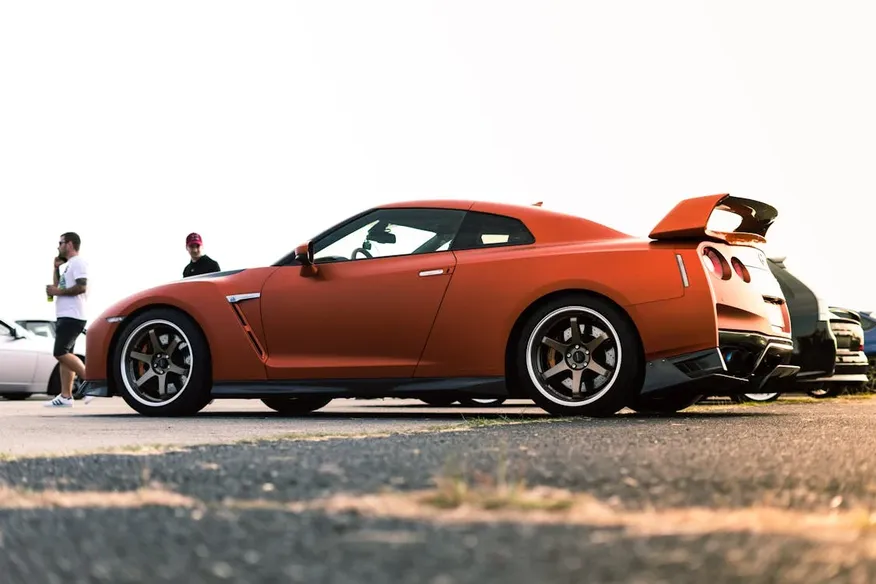
How does Nissan truly stack up against the competition? Let’s compare them directly with their closest rivals in key areas.
When matched against Toyota, Nissan typically offers more aggressive styling and lower initial purchase prices but can’t quite match Toyota’s legendary reliability reputation or resale values. According to Consumer Reports data, Toyota vehicles average 25% fewer reported problems in the first five years of ownership. However, Nissan often provides more standard features at comparable price points.
Comparing Nissan to Honda reveals similar patterns. Honda vehicles generally command premium prices but deliver sharper handling dynamics and more refined powertrains. Nissan counters with more comfortable seating positions and often more generous cargo capacity. As Motor Trend editor Ed Loh observed, “Nissan and Honda design with different priorities – Honda focuses on driving engagement while Nissan emphasizes comfort and value.”
Against domestic brands like Chevrolet and Ford, Nissan typically offers better fuel economy and standard safety features, though American brands often provide stronger engine options and more configuration choices, particularly in truck and large SUV categories.
Korean competitors Hyundai and Kia have dramatically closed the gap with Japanese brands, offering longer warranties and often more cutting-edge technology than Nissan at similar price points. However, Nissan still maintains advantages in dealer network size and parts availability in many regions.
When does choosing a Nissan make particular sense? Nissan shines brightest for:
- Value-conscious buyers who want maximum features for their dollar
- Comfort-oriented drivers who prioritize smooth rides and supportive seats
- Shoppers who find Toyota and Honda models too conservatively styled
- Urban drivers who appreciate Nissan’s city-friendly compact crossovers
- Those with access to strong Nissan dealer incentives, which are often more generous than Toyota or Honda offers
Conclusion: Is Nissan Right for You?
So, is Nissan a good car brand? After our comprehensive analysis, the answer is a qualified yes – with the right expectations and for the right buyer.
Nissan vehicles typically deliver solid value, comfortable interiors, good safety credentials, and attractive styling. While they may not lead the pack in reliability or driving excitement, recent quality improvements have narrowed the gap with segment leaders. The brand occupies a sweet spot between budget brands and premium marques, offering more features than the former and more attainable pricing than the latter.
You might find a Nissan particularly appealing if you:
- Prioritize comfort and convenience features over performance
- Appreciate bold exterior styling
- Are shopping primarily on initial purchase price
- Value advanced safety technology
- Want Japanese engineering with a bit more personality than some competitors offer
Conversely, you might look elsewhere if:
- Long-term reliability is your absolute top priority
- You’re seeking class-leading resale value
- Engaging driving dynamics are essential to your ownership experience
- You want the latest cutting-edge infotainment features
As with any major purchase, a test drive remains essential. Nissan’s distinct approach to transmissions and ride tuning won’t appeal to everyone, but many drivers find themselves pleasantly surprised by the overall package these vehicles offer.
FAQs
Are Nissans reliable long-term? Nissan reliability is generally average to above-average, with recent models showing improvement. Their CVT transmissions from 2013-2018 had higher-than-average failure rates, but newer versions have addressed many issues. Regular maintenance remains key to long-term durability.
Which Nissan model has the best reliability? The Nissan Frontier pickup consistently earns top reliability scores across multiple rating agencies. Among passenger vehicles, the Maxima sedan and Murano crossover typically show better-than-average dependability in long-term studies.
How does Nissan’s warranty compare to competitors? Nissan offers standard coverage of 3 years/36,000 miles bumper-to-bumper and 5 years/60,000 miles for the powertrain. This matches Toyota and Honda but falls short of Hyundai/Kia’s 5-year/60,000-mile basic and 10-year/100,000-mile powertrain coverage.
Are Nissan cars expensive to maintain? According to RepairPal data, Nissan maintenance costs average $500 annually, slightly below the industry average of $652. Routine service costs are competitive, though CVT repairs, when needed outside warranty, can be costly.
Is Nissan better than Toyota/Honda? “Better” depends on your priorities. Toyota typically offers superior long-term reliability and resale value. Honda generally provides better driving dynamics and refinement. Nissan often delivers more features for the money and more distinctive styling. For many buyers, Nissan represents a value-oriented middle ground between these competitors.

